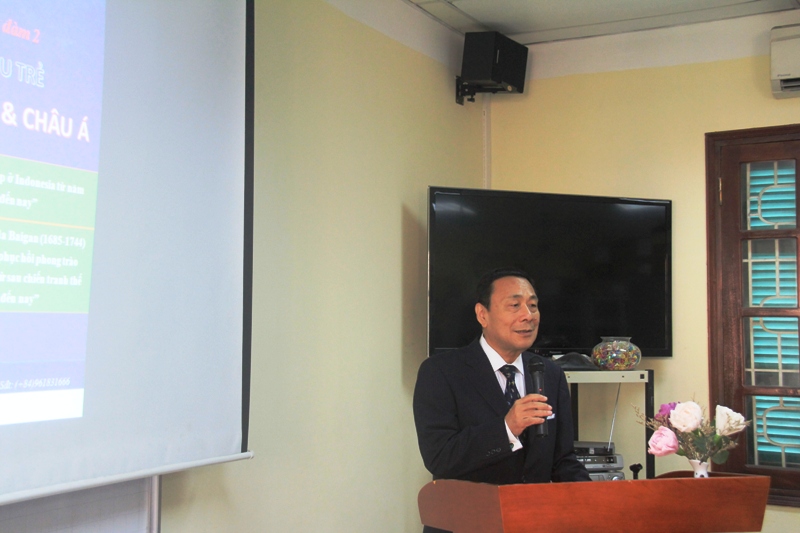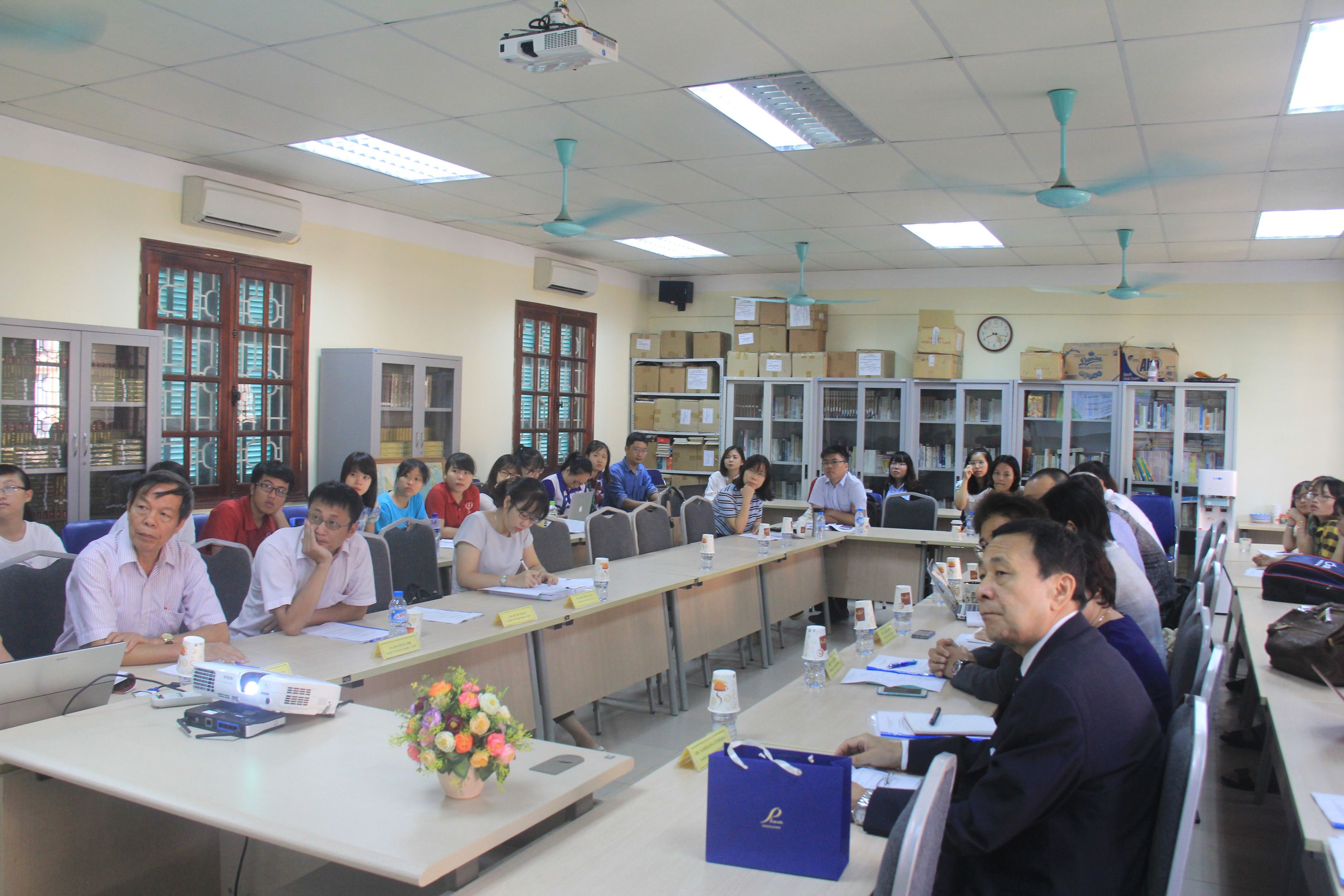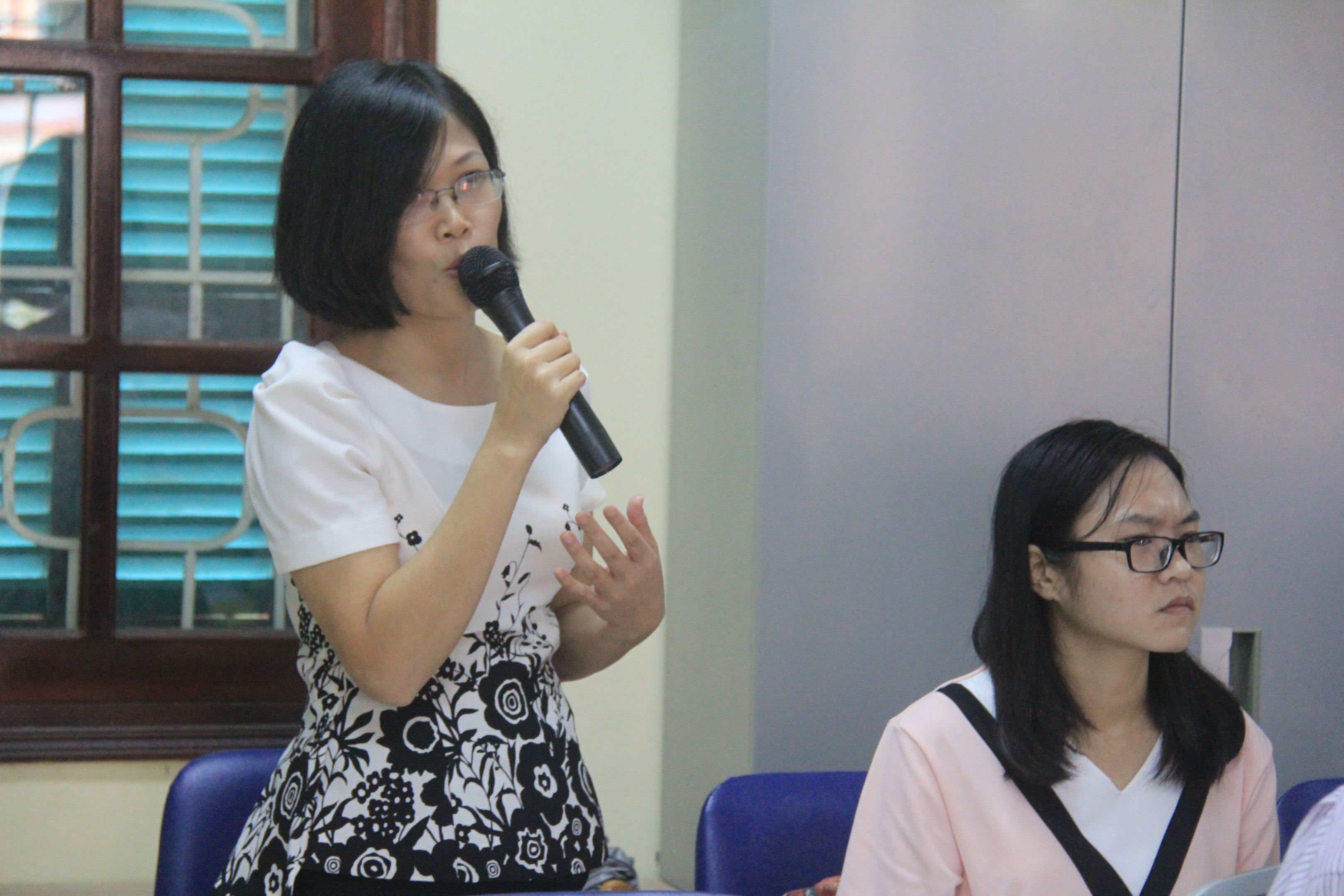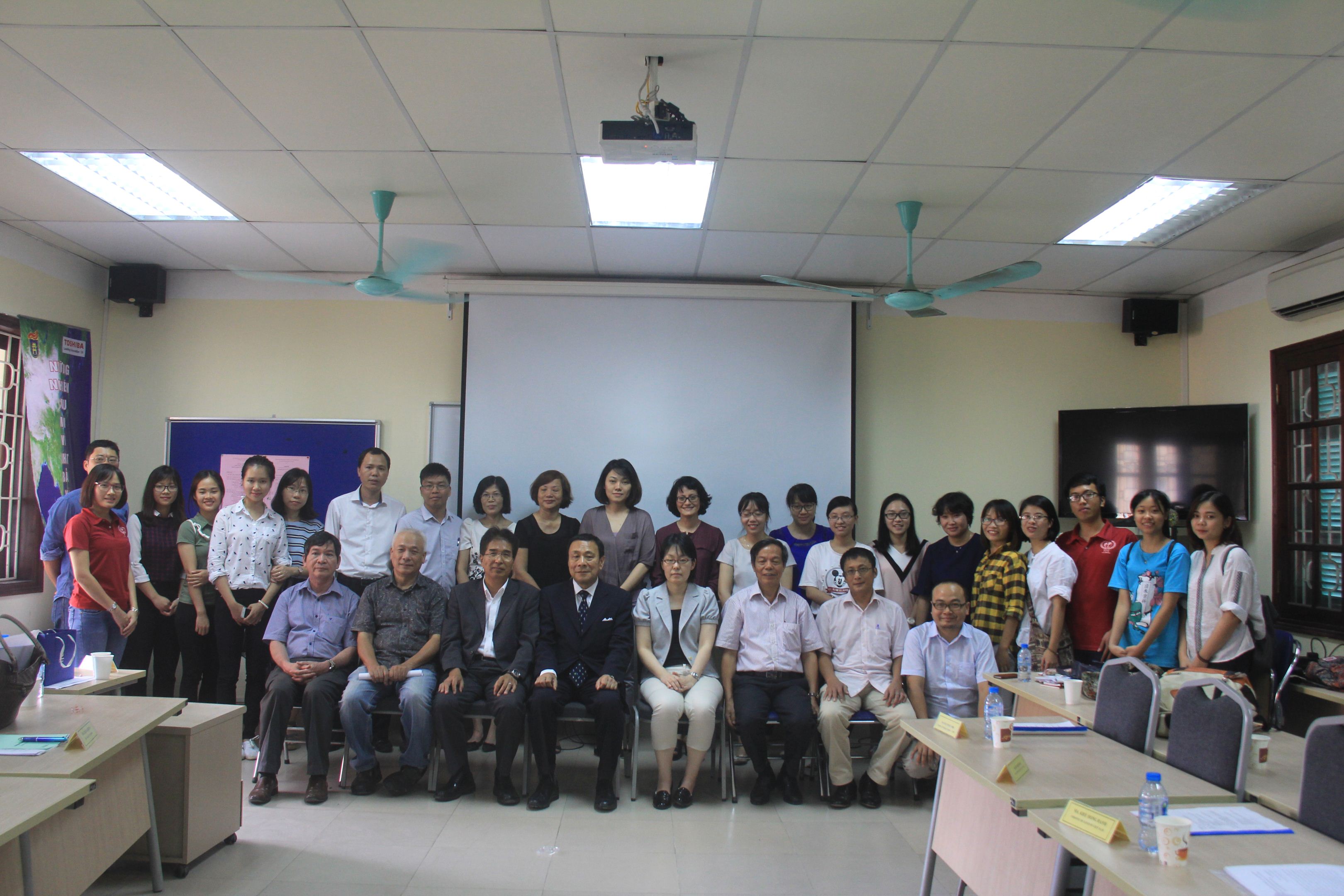
The seminar was attended by Mr. Fujita Shinya, Chief Representative of Toshiba Corporation - Asia Pacific in Hanoi; Mr. Namekawa. Fumihiko - Former Chief Representative of Toshiba International Foundation in Hanoi; Prof. Dr. Mai Ngoc Chu (Faculty of Oriental Studies, University of Social Sciences and Humanities), Dr. Nguyen Tuan Anh (Head of Faculty of Oriental Studies). This series of seminars is where young cadres publish their research as well as have the opportunity to exchange expertise with scientists inside and outside the school to improve their research capacity. This activity is sponsored by Toshiba Foundation (Japan).

Mr. Namekawa Fumihiko delivered the opening speech of the seminar.
At the seminar, delegates listened to two scientific reports: “Legislative reform in Indonesia from 1999 to present” by Dr. Ho Thi Thanh (Faculty of Oriental Studies, University of Social Sciences and Humanities) and “The thoughts of Ishida Baigan (1685-1744) and the trend of reviving the Sekimon Shingaku movement from after World War II to present” by MSc. Kieu Hong Hanh (Culture and Communications Department, Embassy of Japan in Vietnam).

Overview of the discussion
The report of Dr. Ho Thi Thanh clarified the process of legislative reform in Indonesia through the following contents: the basis for legislative reform since 1999; amendments to the organizational structure and role of the legislative body, including the People's Consultative Council, the highest authority in Indonesia; reforms in the actual organization and operation of the Legislature; and finally, some limitations in the organization and operation of the Indonesian legislature from 1999 to the present. The author concluded that the amendment of the 1945 Indonesian Constitution has fundamentally contributed to a strong change in the organizational structure and operating mechanism of this body compared to the New Order period. The bicameral structure in the parliament with members directly elected from the General Election has helped the legislature during this period to perform its functions well. Despite some limitations, legislative reforms have contributed to promoting Indonesia's democratization process from 1999 to the present.

Dr. Ho Thi Thanh presented the report "Legislative reform in Indonesia from 1999 to present"
In the comments section, Prof. Dr. Nguyen Dang Dung (Faculty of Law, VNU) said that the essay has analyzed relatively fully the content of the legislative reform process in Indonesia through the amendments to the Constitution, clarified the reduction of the role of the president in legislation, and finally analyzed the position and role of the regional representative body DPD (People's Representative Council). However, the report is still a bit scattered and fragmented because of unnecessary topics such as "concept of legislative body", section 3 of "Amendment of legal provisions on the organizational structure and role of legislative body", etc. For his part, Dr. Nguyen Thanh Van (Institute of Southeast Asian Studies - Vietnam Academy of Social Sciences) said that the author has built a comprehensive "picture" of the legislative reform process in Indonesia. He added that the success of ASEAN in completing the ASEAN Community depends a lot on the stability and of its member countries, especially countries like Indonesia. Therefore, studying the reforms in Indonesia will help Vietnam in particular and ASEAN in general understand more about this country and draw lessons for themselves.
The report of Master Kieu Hong Hanh mentioned the basic contents of Ishida Baigan's thoughts through the work "Do bi van dap", and at the same time somewhat generalized and analyzed the trend of restoring Seikimon Shingaku from after World War II to the present. According to the author, his thoughts were born at the time when Japanese urban society was in a stagnant period. By attributing economic and social problems to the mind and attitude of each person, Baigan's thoughts overcame the passive attitude of the common people. Thanks to the convergence of good traditional moral values of the business community in particular and the Japanese people in general, the Seikimon Shingaku movement initiated by Baigan aroused the spirit of justice of a country full of wounds after World War II. It helped Japan firmly develop commercial activities around the world, helping them to be proud of the Made in Japan brand today.

MSc. Kieu Hong Hanh presented the report "Ishida Baigan's (1685-1744) thoughts and the trend of reviving the Sekimon Shingaku movement from after World War II to the present"
According to Associate Professor Dr. Pham Hong Thai (Institute of Northeast Asian Studies, Vietnam Academy of Social Sciences), the report of Master Kieu Hong Hanh has brought new knowledge, making an important contribution to the research process and enhancing understanding of Japanese culture in general and Japanese ideological history in particular in Vietnam. Associate Professor Dr. Pham Hong Thai highly appreciated the author's use of quantitative statistics to analyze Ishida Baigan's ideology, as well as documents with clear origins. The author is encouraged to continue research related to and comparing with the history of Vietnamese ideology to contribute more. Dr. Nguyen Duong Do Quyen (Institute of Social Science Information - Vietnam Academy of Social Sciences) said that this topic has a meaningful reference for Vietnam's reality, when the issue of balancing growth with ethics and social responsibility, professional ethics of society is becoming increasingly urgent. Specifically, the research topic examines a historical lesson of Japan in building business ethics and culture, thanks to which business corporations over generations have developed sustainably and maintained international reputation. However, the topic needs some modifications in terminology, presenting more in-depth the ideological foundation that Baigan was influenced by, and adding more about the relationship of Baigan's academic and educational activities with the government and other organizations, political-social and cultural forms.

Author:Tran Minh
Newer news
Older news